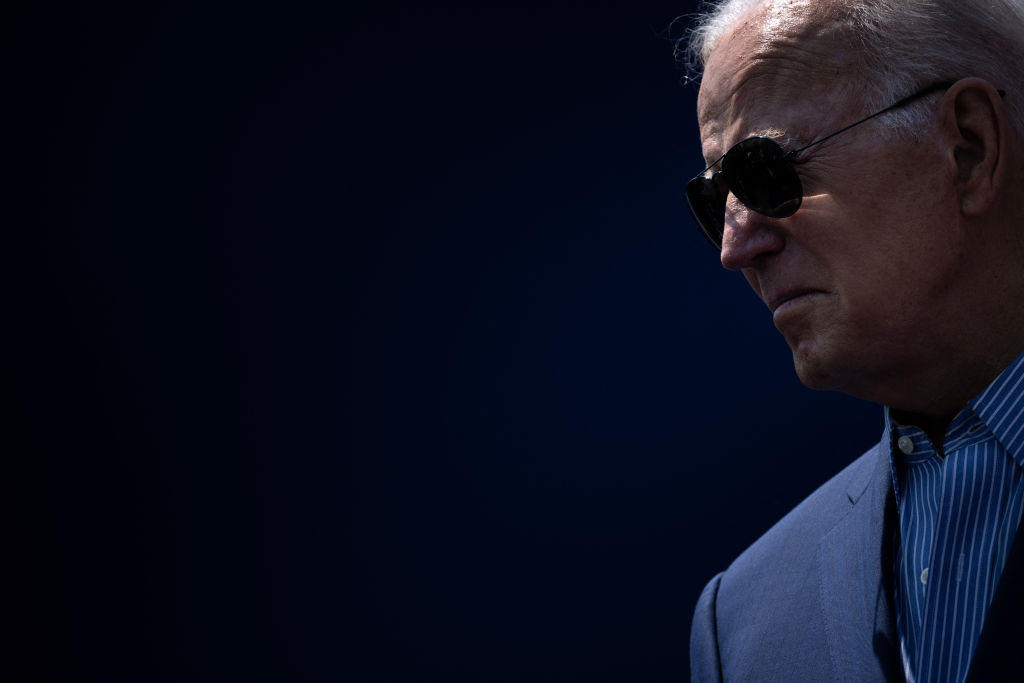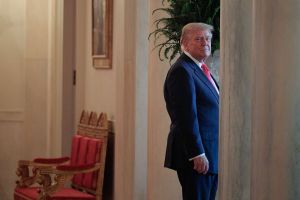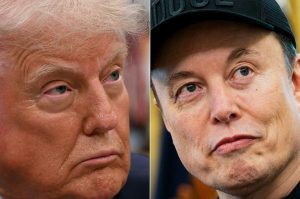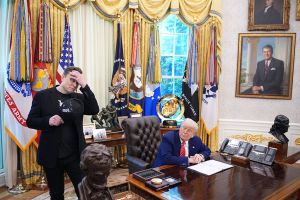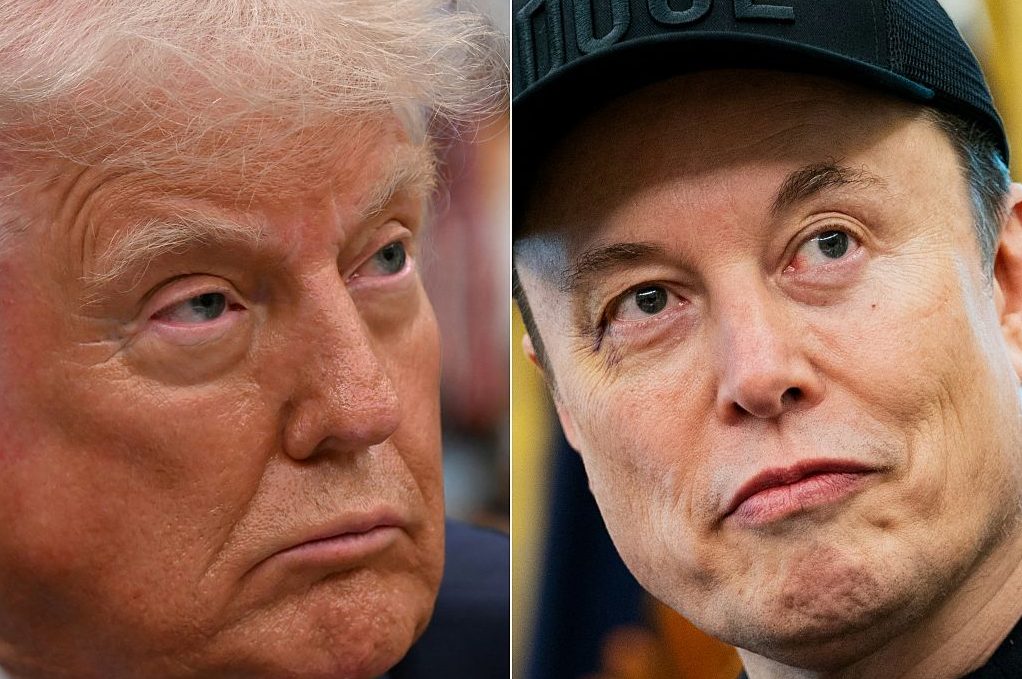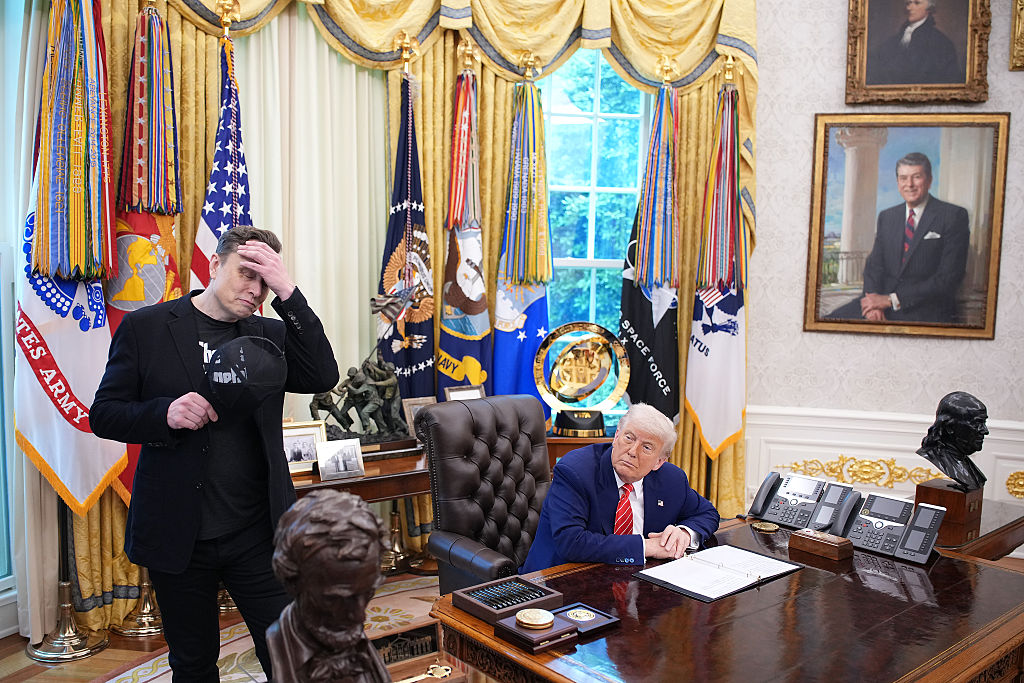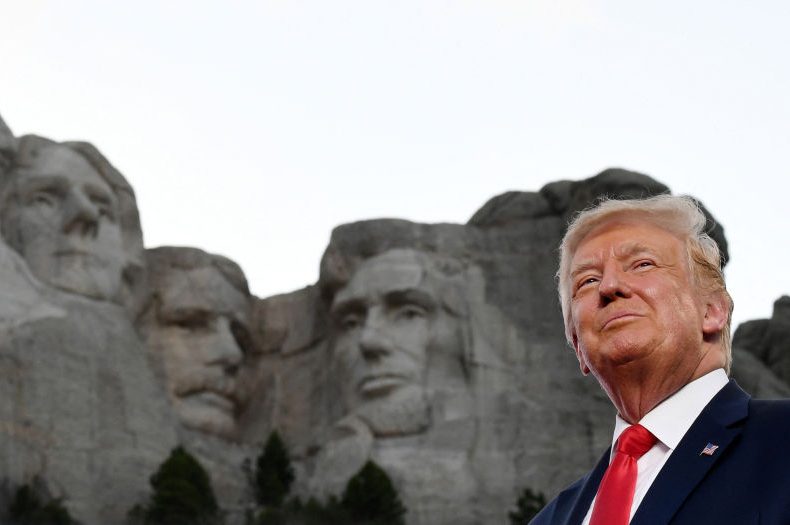In recent months, the Biden administration has indicated a thaw in US-China relations. The easing of tensions is, according to the White House and the State Department, simply responsible statesmanship: high-level channels of communication must be maintained to avoid disaster, the temperature should be lowered to avoid an ill-considered confrontation; better jaw-jaw than war-war.
As part of this softening, Antony Blinken is set to visit China later this month. That trip was supposed to take place in February, but was cancelled at the last minute after a Chinese spy balloon drifted across the continental United States. (Blinken has reportedly told Chinese officials he wants to “move past” the incursion.) CIA chief William Burns was in Beijing in May.
So far, this US-China thaw has been mostly rhetorical — a change in tone more than anything else — and pretty one-sided — Beijing sounds as bellicose as ever. But today brought signs that this softening is about much more than mood music. The Wall Street Journal reports that the Biden administration “plans to allow top semiconductor manufacturers from South Korea and Taiwan to maintain and expand their existing chip-making operations in China, without US reprisals.”
This is a major reversal on a central plank of both the administration’s economic and foreign policy strategies. Last October, the Biden administration announced a slew of severe export controls for the chip industry designed to isolate China. It may have sounded technical, but it was a declaration of economic war. And today’s news amounts to a retreat. It also undercuts the logic of the (very expensive) CHIPS Act, legislation designed to build a homegrown chip industry.
The move is in keeping with the administration’s retreat from the idea of “decoupling” in recent months. A few weeks ago, commerce secretary Gina Raimondo met with her Chinese counterpart to talk up economic ties. In a speech in April, National Security Advisor Anthony Blinken signposted such moves when he said, “we are for de-risking and diversifying, not decoupling.”
Earlier that month, treasury secretary Janet Yellen said something similar: “The United States will assert ourselves when our vital interests are at stake. But we do not seek to ‘decouple’ our economy from China’s. A full separation of our economies would be disastrous for both countries. It would be destabilizing for the rest of the world. Rather, we know that the health of the Chinese and US economies is closely linked. A growing China that plays by the rules can be beneficial for the United States.”
The upshot of this all is that the Biden administration’s new line on China goes far beyond a tactical bid to lower the temperature. As today’s news confirms, it amounts to a meaningful strategic change. For the first three years of the Biden administration, China was a rare point of consensus in Washington. Joe Biden picked up where his predecessor left off, taking a tough line on Beijing. Biden’s new position, though, has changed that. Politically, the issue is on the table again. And the Biden administration will be vulnerable to the charge that it is failing to take seriously the threat it spent 2021 and 2022 warning us about.
On our radar
NEWSON ON BIDEN 2024 In a clip to tease an interview set to air tonight, Sean Hannity asks California governor Gavin Newsom, “How many times does your phone ping a day with people saying you need to get in this race as they agree with me that he’s not up to the job?” Newsom replies: “I see where you’re going with that.” Hannity: “I’m asking.” Newsom: “And I’m not answering.”
IS RAMASWAMY ABOUT TO SUSPEND HIS CAMPAIGN? Not one to miss out on a media feeding frenzy, Vivek Ramaswamy has said that he will be appearing outside the Miami courthouse where Donald Trump is set to be arraigned tomorrow. The bio-tech entrepreneur turned anti-woke crusader has teased that he will “discuss the politicized prosecution of the former president” and “make another announcement there as well.” Could he be about to throw in the towel and endorse Trump?
SILVIO BERLUSCONI, 1936-2023 Four-time Italian prime minister Silvio Berlusconi has died at eighty-six. From The Spectator archives: when Boris met Berlusconi.
*** Sign up to receive the DC Diary in your inbox here ***
Senate sets its sights on LIV/PGA merger
A Senate committee has launched an investigation into the merger between PGA Tour and the Saudi-funded LIV Golf organization following their announcement to create a new golf entity.
In letters sent to both organizations on Monday, Senator Richard Blumenthal, chair of the Senate Permanent Subcommittee on Investigations, requested all communications and records between PGA Tour and LIV, as well as those related to the PGA Tour’s desire to maintain its tax-exempt status after the merger.
LIV, which was created in 2021, is owned by the Saudi Arabian Public Investment Fund (PIF) and has been criticized as a branch of the Saudi government. Blumenthal raised questions about national security and Saudi Arabia’s human rights record in the letter sent to PGA Tour commissioner Jay Monahan. Blumenthal claimed PIF “intends to use investments in sports to further the Saudi government’s strategic objectives.”
“PGA Tour’s agreement with PIF regarding LIV Golf raises concerns about the Saudi government’s role in influencing this effort and the risks posed by a foreign government entity assuming control over a cherished American institution,” Blumenthal wrote.
Blumenthal was among the critics of the deal when it was announced last week. He had previously met with Monahan last June to discuss the ongoing litigation between the two organizations. According to Blumenthal, Monahan had encouraged him to speak out against LIV during their meeting.
“He enlisted me to speak vehemently about the negative effects of the LIV tournament on the sport and damage it does in terms of sportswashing. And now for him to 180 degrees abandon the 9/11 families and others, I think, it speaks volumes,” Blumenthal said.
Blumenthal has requested PGA Tour and LIV submit documents and records by June 26.
–Michael Bachmann
When will Biden pick a new NATO leader?
NATO is in need of a new secretary general, a position currently held by Norwegian Jens Stoltenberg, who has shepherded the alliance with great success since 2014. According to Politico, the main candidates on offer — though few are willing to admit it themselves — include Denmark’s Mette Frederiksen, the UK’s Ben Wallace, Estonia’s Kaja Kallas and Spain’s Pedro Sánchez. There is not a clear leader in the race, though Frederiksen recently paid a visit to President Biden, whose vote of confidence will be critical. Unfortunately, Biden has not yet made up his mind (what else is new?), and if a decision is not made by NATO’s July summit, Stoltenberg’s term may have to be extended — something the long-time leader does not want. The current NATO head will be at the White House on Tuesday, with his replacement likely to be on the agenda.
The times demand a candidate with a clear vision and understanding of the challenges ahead. The times also demand a US president who can make up his mind in a timely manner.
–John Pietro
From the site
Chadwick Moore: Tucker Carlson can live without Fox News. Can they live without him?
Dave Seminara: In defense of Casey DeSantis
Mark Galeotti: The Ukrainian counteroffensive, explained
Poll watch
PRESIDENT BIDEN JOB APPROVAL
Approve 42.2% | Disapprove 54.9% | Net Approval -12.7
(RCP average)
SHOULD TRANSGENDER ATHLETES BE ABLE TO PLAY ON SPORTS TEAMS THAT MATCH THEIR GENDER IDENTITY RATHER THAN THEIR SEX AT BIRTH?
2021
Yes 34% | No 62%
2023
Yes 26% | No 69%
(Gallup)
Best of the rest
Michael Powell and Ilana Marcus, New York Times: The failed affirmative action campaign that shook Democrats
Jim Hinch, Tablet: The age of drug normalization
Lyman Stone and Brad Wilcox, the Atlantic: Now political polarization comes for marriage prospects
Max Tani, Semafor: How Warner used CNN to lobby Andrew Cuomo
Kate King, Wall Street Journal: Hotel owners start to write off San Francisco as business nosedives
Derek Robertson, Politico: RFK Jr. crashes the techno-politics party



